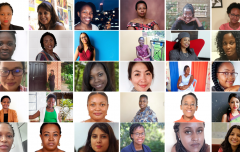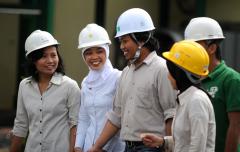Women and Girls in Science Day: Three women advancing the energy transition
The science, technology, engineering and mathematics (STEM) fields are critical to the global energy transition. They are responsible for innovations in renewable technologies, energy efficiency, storage and distribution, all of which are needed to deliver affordable, clean energy to everyone.
Unfortunately, women are not as well represented in both STEM fields and the energy sector: only 32 percent of employees in the renewable energy sector are women. The problem with this is it undermines a truly inclusive energy transition. Women must play an equal role as agents of change in shaping energy solutions and benefiting from the employment opportunities the energy transition creates. The same can be said for youth, whose future is most at stake when it comes to the energy transition.
The good news is that there are plenty of young, inspiring women who are helping shift employment trends in STEM and energy. These women are proving that existing gender biases can be overcome.
Coincidentally, 11 February 2022 is both the International Day for Women and Girls in Science and the one-year anniversary of the SEforALL Youth Summit, which was held to support youth engagement in the energy transition.
To mark the occasion, we’re profiling three young, female change-makers working in STEM and energy.




